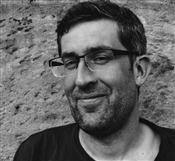Events
CDH Tutorial: Philosophy and computer simulations – two incompatible realms?
What role can computational models play in philosophy? Theoretical philosopher Dominik Klein will try to answer this question during this tutorial on November 30. This tutorial provides additional and practical insights on Rainer Hegselmann’s lecture on Opinion Dynamics on November 18, but can also be followed independently.
At first sight, computer simulations and philosophy seem an odd couple. After all, isn’t philosophy interested in logically sound categoric truths? And aren’t simulations an approximative tool at best, building a simplified model of some reality that is further bound by computational limitations? In light of this apparent discrepancy, the question arises which role computer simulations can play in philosophy, if any.
Yet, recent years have seen a proliferation of computational simulations in philosophy. In this tutorial, we will encounter a number of seminal models and discuss what exactly their contribution is. Among these models will be the bounded confidence model of Hegselmann and Krause, that will also play an important role in Rainer Hegselmann’s lecture.
About

Dominik Klein is assistant professor theoretical philosophy in the Philosophy Department at Utrecht University. He focuses on Formal Philosophy and Agent Based Simulations in Philosophy and mainly works on logic, social epistemology and political theory. Klein teaches in the Philosophy Program as well as in Artificial Intelligence.
Admission is free, but the number of participants is limited, so please register as soon as possible (first come, first served). If you are unable to attend, please cancel your registration by sending an email to CDH@uu.nl, so another participant can take your place.
Please note: the Centre for Digital Humanities aims to promote digital literacy amongst staff-members. When taking this course, the CDH will automatically settle a DCU compensation of 4 hours with your department, which equals 0,2 DCUs (this is double the actual time investment).

